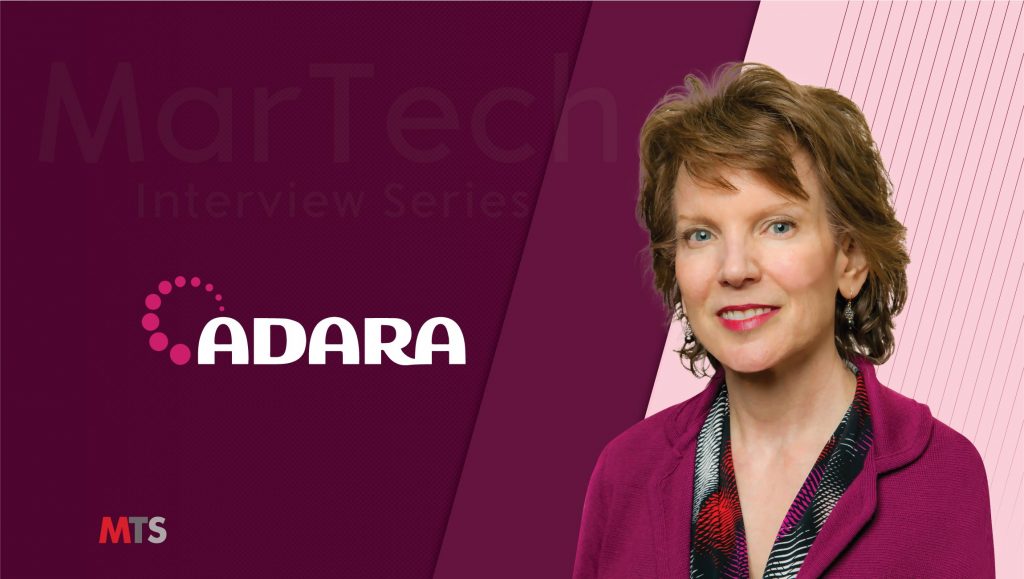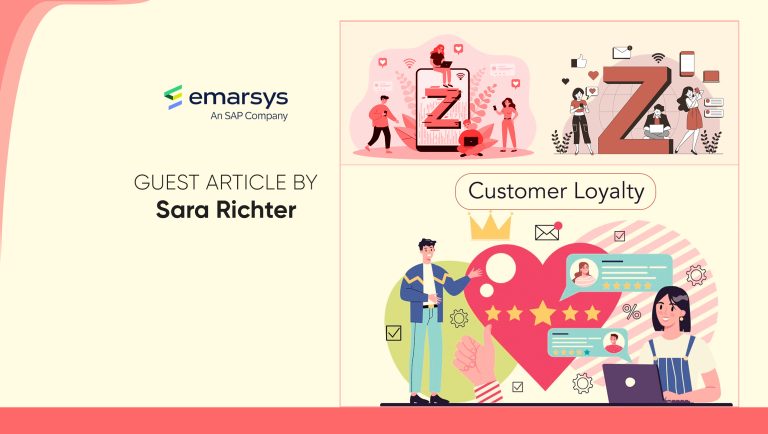
“I consider data and technology to be necessary for Advanced Marketing to work, and Advanced Marketing must work for brands to stay relevant”
What led you to create this research for travel marketers?
We wanted to shed light on how travel brands are advancing their capabilities to deliver customer engagement and personalization. Over the past several years, many brands have invested in various digital engagement technologies to upgrade their ability to tailor guest interactions.
Sky-rocketing consumer expectations and disruptive new entrants are forcing brands to re-examine the pace, sophistication, and completeness of their investments. Our survey was designed to assess this current state and give visibility to the future plans of existing players.
Personalization that genuinely aligns with guest preferences and goals is a top priority in the travel industry as leading travel brands roll-out new capabilities. Some brands are starting to experiment with things like mobile payments and personalization. For example Accor, a French hotel chain recently partnered with Alibaba for a better booking experience.
Travel brands are realizing that they are not just competing against other travel brands but they’re also competing against the leading brands everywhere. Google recently announced that they can offer travel researchers the best time to travel based on weather, crowds, and prices. And, consumers’ expectations are shaped by their experiences with brands like Sephora and Amazon that excel at applying intelligence to each customer interaction. Experiences like predictive product recommendations, customized experiences across channels reset the norms for customer treatment, and many travel brands are working to advance their approach to meet these new standards.
What are the benefits of Advanced Marketing for travel marketers?
The benefits for advancing Marketing efforts are as measurable as the risks. I consider data and technology to be necessary for Advanced Marketing to work, and Advanced Marketing must work for brands to stay relevant.
With advanced data insights, brands gain the power to understand consumer behavior and to engage. Travel marketers are typically looking through a keyhole, seeing only a small slice of their customer’s behavior. Without a complete understanding of what the customer is doing, what their preferences and loyalties are, brands can merely guess at how to effectively personalize marketing. Advanced Marketing takes in many more data points in order to deliver a more accurate predictive approach.
What’s more, it’s a virtuous cycle. These advanced data insights can combine with Machine Learning and AI to get more accurate and more effective over time. Brands can start to understand behavior patterns, test new ideas, and predict more elements of a customer journey.
What were the key findings in your recent research about travel marketers?
We found that overall, brands are driven by a need to better understand customers. Fifty-seven percent are prioritizing a deeper understanding of purchase behavior as their primary goal.
Brands are just beginning to use Advanced Marketing tactics, and many plan to invest more next year. There is a long way for them to go. For example, we found that fewer than one in ten travel marketers surveyed (9%) use AI extensively for personalization. We also saw that less than one third (31%) of brands currently use derived data at an individual level.
With so much opportunity in front of them, travel brands should be able to reap major benefits with each step along their path. For example, adding personalization to one Marketing channel will increase channel performance. As these individual investments are strung together, the level of insights and performance climbs further, still.
What are some reasons that travel marketers are behind with Advanced Marketing tactics?
Travel suppliers like Airlines and Hotel chains are technically advanced. It takes massive IT resources, sophisticated logistics and staffing to keep millions of travelers moving around the globe every day. Now, these companies must also compete with digital startups, aggregators and platforms like Google on Marketing and Customer Experience, which requires another massive layer of resources. They know what they need to do, but Advanced Marketing is simply one of several major investments they are making in the customer.
Therefore, it’s not a surprise that we also found that brands cite a lack of IT resources and a fear of privacy as two reasons for their delay. Luckily, both of these issues are changing quickly. With so much planned investment next year, we expect that travel brands will start to get the IT resources they need to implement new technologies and integrate new sources of data.
With regard to privacy, all brands are grappling with the same shifting landscape as new privacy laws are rolled out in 2020. The best approach incorporates good quality data from trusted partners and uses best practices across data storage, use and rights management. As cookies decline, we expect brands to prioritize identity-based platforms.
Do travel marketers plan to invest in Advanced Marketing?
The overwhelming answer to this question is, “Yes!” There’s broad recognition of the importance of investing in Advanced Marketing. Many companies have already invested in the technology to improve customer engagement and now they need the data “fuel” to unleash the promised personalization of those investments. Not surprisingly, data derived at an individual level was the most popular type of data planned to be used next year. We also saw that while only one-third of travel marketers (33%) use dynamic segmentation, 42% plan to use it next year.
However, 2020 will not be the last year where we see brands investing in new Advanced Marketing tactics. While, less than half of travel marketers, 47%, have some level of multichannel orchestration currently in place, only 21% plan to prioritize mobile personalization, indicating that there is still a long way to go.
What are some best practices for travel marketers to keep in mind?
We see three pillars that support Advanced Marketing, and we recommend that travel brands consider each. Data and Analytics include both new insights and new approaches to analyzing those insights, from AI-driven segmentation to predictive messaging. With Activation and Improvement, we encourage travel brands to consider how they will harness those new insights through advanced marketing practices such as programmatic advertising, or real-time personalization. It’s also important to have a process that pushes feedback through the system to further improve insights.
Finally, we believe that Advanced Marketing must be pervasive. Many travel brands will be investing in specific new solutions, maybe for their website, or for customer care, but to a consumer, these channels are all part of a single brand experience. Advanced Marketing must be orchestrated similarly.
What insights or advice do you have for marketers reviewing this research?
It’s easier to field a survey than it is to implement Advanced Marketing! The investments that brands have planned are very exciting, but the climb in front of them is demanding. Brands face new privacy regulations, technical challenges, and of course, highly discerning customers.
The brands that are most successful in this journey combine a commitment to long term advancement with short term wins baked into the plan to keep their team and their company committed to the effort. There are huge gains to be made in getting personalization right as well as huge penalties for falling short. It’s worth the effort and resources to get it right.
Thank you, Carolyn! That was fun and hope to see you back on MarTech Series soon.
Carolyn Corda is the CMO at ADARA, the data solution for travel brands. Carolyn is a data industry leader with extensive experience in driving transformational marketing for travel companies. Prior to Adara, she was a Managing Director at Accenture where she was the led Applied Intelligence for the travel practice in N. America. Previous to that role, Carolyn was a senior executive at Epsilon. She also held executive roles at Fair Isaac and Sabre, and pioneered the first travel data co-op, Vistrio.
Carolyn earned a Bachelor’s degree from Yale University, an MBA from UCLA and a Master’s from Cornell’s School of Hotel Administration.
ADARA empowers the world’s leading travel brands to grow the industry together. Built on the world’s richest travel data co-op, ADARA offers people-based insights for travel companies.
Clients get a value-based understanding of their relationship with their customers, with travel patterns, trends and behavior from more than 850 million monthly unique traveler profiles across more than 200 of the world’s top travel brands. ADARA delivers critical intelligence to activate personalization and relevance throughout the customer journey for sustainable growth. Its offerings span the three core pillars – Learn, Act, Measure & Modify – to drive measurable outcomes at the customer level.
The MTS Martech Interview Series is a fun Q&A style chat which we really enjoy doing with martech leaders. With inspiration from Lifehacker’s How I work interviews, the MarTech Series Interviews follows a two part format On Marketing Technology, and This Is How I Work. The format was chosen because when we decided to start an interview series with the biggest and brightest minds in martech – we wanted to get insight into two areas … one – their ideas on marketing tech and two – insights into the philosophy and methods that make these leaders tick.
























